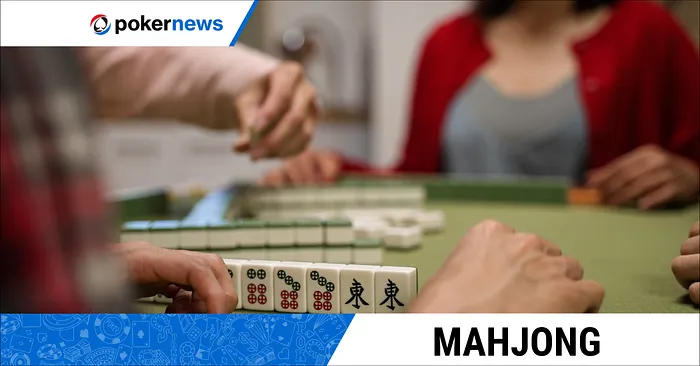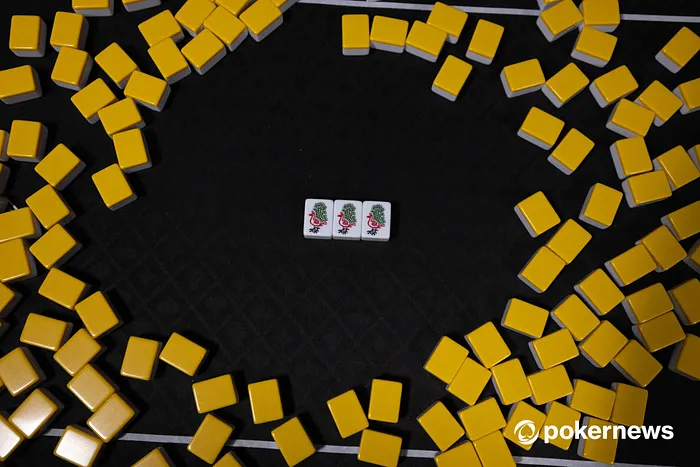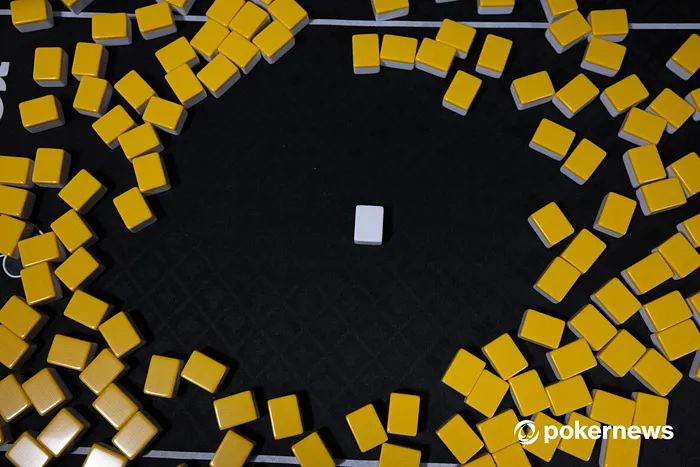Mahjong Strategies - Mastering the Art of Tile Play and Victory

Embark on a journey to master Mahjong through strategic play, where each move is a step closer to victory. This guide delves into the intricacies of Mahjong strategies, from tile prioritization to reading opponents. If you've already learned how to play Mahjong, discover how strategic thinking can elevate your Mahjong game to new heights.
The Essence of Mahjong Strategies
At the heart of strategic play lies a deep understanding of tile sets, where each tile bears significance in shaping the course of the game. Grasping the nuances of tile composition enables players to make informed decisions, determining when to draw, discard, or declare victory.
Equally vital is the ability to recognize key patterns, whether they involve pairs, melds, or specific combinations. This strategic insight forms the bedrock of Mahjong gameplay, allowing players to anticipate opponents' moves and adapt their strategies dynamically. By understanding the intricacies of tile sets and patterns, players can elevate their gameplay, turning each move into a calculated step toward achieving victory.
Tile Prioritization and Discard Strategies
Mastering the art of tile prioritization and effective discard strategies is paramount to success. Tile prioritization involves assessing the potential value of each tile in the context of your hand and the evolving game. Recognizing high-value tiles for potential melds or pairs becomes essential.

Effective discard strategies play a pivotal role in Mahjong gameplay. Each discarded tile reveals valuable information about an opponent's hand, creating opportunities for strategic disruptions or advantageous draws. Knowing when to discard tiles to mislead opponents or block their potential combinations is a nuanced skill that seasoned players hone.
Optimizing chances of forming winning combinations requires a delicate balance between drawing strategically and discarding tactically. Players must gauge the evolving dynamics of the game, adapt to opponents' strategies, and anticipate future moves. This dynamic interplay between tile prioritization and discard strategies elevates Mahjong beyond chance.
Reading Opponents and Adaptability
The ability to read opponents and adapt your strategy is a hallmark of seasoned Mahjong players. Reading opponents involves observing their moves, discerning patterns in their discards, and gaining insights into their hand composition. By understanding the choices made by rivals, players can anticipate their strategies, providing a foundation for informed decision-making.
Adaptability is a key trait in Mahjong, requiring players to dynamically adjust their approach based on opponents' actions. Observing opponents' discards not only aids in reading their intentions but also presents opportunities for strategic advantages. Recognizing when to adjust your game plan, whether by withholding specific tiles to disrupt opponents or by capitalizing on their discards to complete your own combinations, is a skill that separates amateurs from expert players.
Maximizing opportunities involves a delicate balance between reading opponents and adapting in real time. By staying attuned to the evolving dynamics of the game, players can exploit opponents' weaknesses and capitalize on their own strengths. The interplay between observation, adaptation, and strategic decision-making transforms Mahjong into a dynamic battlefield where adaptability becomes a potent weapon.
Advanced Mahjong Strategies for Scoring
Identifying scoring opportunities is a nuanced skill that involves recognizing specific tile combinations, situational contexts, and the potential for bonuses. Seasoned players not only understand the basic scoring mechanics but also possess the acumen to optimize point potential through strategic decision-making.
Maximizing point potential in Mahjong demands a keen awareness of the prevailing wind and an understanding of the scoring implications tied to specific winds and dragons. Expert players navigate the game with an eye on achieving high-scoring combinations, utilizing strategic discards and draws to enhance their point tally. Additionally, leveraging bonus points for unique achievements, such as winning with a self-drawn tile or completing a hand with certain special patterns, further contributes to advanced scoring strategies.

Tournament Strategies for Mahjong
Many people play Mahjong in a tournament setting, which requires them to develop new skills and strategies. Managing time effectively is a critical element in tournament play. With limited time for decision-making, players must strike a balance between efficiency and precision, ensuring each move contributes to their overall strategy.
Adapting strategies to different opponents' tendencies is another key aspect of tournament Mahjong. Expert tournament players remain agile, adjusting their tactics based on opponents' strengths and weaknesses, as well as the specific rules and format of the tournament.
In Mahjong tournaments, where the stakes are high and the competition often fierce, anticipating the moves of skilled opponents becomes crucial. This involves not only reading the tiles but also gauging the playing styles and preferences of adversaries. The ability to predict and counter opponents' strategies adds an extra layer of complexity to tournament play.
Top 5 Tips for Mahjong Mastery
Achieve Mahjong mastery with these top five tips that combine fundamental principles and advanced strategies. First and foremost, master the fundamentals by developing a solid understanding of basic Mahjong rules and tile combinations. A strong knowledge of the rules and the significance of each tile sets the stage for strategic decision-making
Prioritize tile efficiency to optimize your hand. This involves strategic tile selection and discard strategies. Recognize the value of each tile and make informed decisions to enhance your chances of forming winning combinations. Efficient tile management is a key component of strategic play.
Adaptability is a cornerstone of Mahjong mastery. Read your opponents' moves, discern patterns in their discards, and adapt your strategy to the changing dynamics of the game. Being able to adjust your approach in response to opponents' actions is a crucial skill that elevates your gameplay.
Practice scoring strategies to maximize your point potential. Utilize advanced scoring techniques, including identifying scoring opportunities and leveraging bonus points for unique achievements. An understanding of scoring adds depth to your strategic repertoire, allowing you to accumulate higher scores.
For those aspiring to excel in tournament play, sharpen your skills with specific tournament tactics. Emphasize time management to make effective decisions within the tournament's time constraints. Additionally, refine your adaptive strategies, as tournament dynamics can change rapidly.
Other Mahjong Articles You May Be Intersted In
FAQs - Mahjong Strategies
How do I improve my tile recognition skills in Mahjong?
Enhance tile recognition skills by consistent practice, focusing on identifying tiles quickly and memorizing their significance in different contexts.
What are some common mistakes to avoid when implementing Mahjong strategies?
Common mistakes include overvaluing certain tiles, neglecting adaptability, and failing to read opponents accurately. Avoiding these pitfalls enhances strategic gameplay.
How can players adapt their strategies when playing against different skill levels?
Adapt strategies by observing opponents' playing styles. Against novices, focus on fundamentals, while with experts, employ more nuanced and unpredictable tactics.
Are there specific strategies for success in fast-paced Mahjong tournaments?
In tournaments, emphasize time efficiency, adaptive strategies, and risk assessment. Swift decision-making and flexibility are crucial for success in fast-paced settings.
What is the role of luck versus skill in Mahjong, and how does it impact strategies?
Mahjong combines luck and skill. While luck influences the tiles drawn, skill comes into play in strategy. Players adapt their strategies based on the balance of luck and skill in a given situation.
